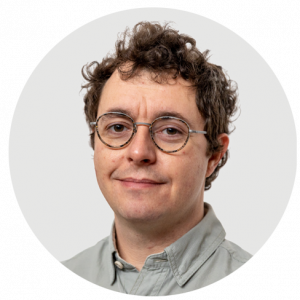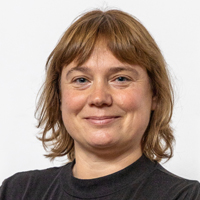inner-shell chemistry
In his ERC Starting Grant, Matic Lozinšek has been focusing on research of chemical reactions with fluorine under extremely high pressure - over 100,000 bar, enabling the testing of the restrictions currently in force in chemistry. The project is a combination of two specialized experimental and extreme fields of research - the study of substances under extremely high pressures, and research in extreme chemical reactivity. Through his work, JSI aims to establish a new frontier research direction – high-pressure fluorine chemistry, exploring the existence of compounds with elements displaying unusual and exotic formal oxidation states, and even the possibility of inner electronic shell involvement in chemical bonding, hopefully giving birth to the new field of inner shell chemistry.
Matic Lozinšek, ERC Starting Grant
microlasers inside cells
The goal of the ERC Starting Grant project Cell-Lasers is to make novel microlasers from biocompatible and biological materials and implant them into live organisms and even single cells. While various medical implants, including electronic ones, are routinely used nowadays, implantable photonic devices, such as lasers, are part of a very novel research area.
The implantable lasers being developed within this project will provide unprecedented insight into very complex biological processes, with superior sensitivity to various parameters, the ability to image deeper into the tissues, and to track movements of single cells. This will allow us to study the function of organisms in normal states, as well as in states of disease, and provide new non-invasive medical diagnostic techniques.
Matjaž Humar, ERC Starting Grant
superconducting quantum devices
Electronic devices made of nanoscopic semiconducting and superconducting parts are a key platform for building future quantum simulators and computers. Rok Žitko is developing modelling tools for the computer-aided optimization of device properties and the analysis of novel functionality.
Rok Žitko
solid-state cooling with multicaloric materials
Efficient cooling of electronic components is extremely important for future nano- and quantum devices. Hana Uršič investigates multicaloric materials as the active parts of the cooling elements for emerging environmentally friendly refrigeration.
Hana Uršič
personalised trustworthy optimisation
Explainability is a prerequisite for trustworthy optimisation: We need to understand which algorithms work well on which optimization problems and why. Tome Eftimov is investigating this question in black-box optimisation systems by considering personalised, algorithm-specific and problem-specific representations to acquire new knowledge about how optimisation algorithms and problems interact.
Tome Eftimov
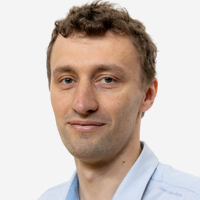 dynamics of complex magnets
dynamics of complex magnets
We develop new techniques for studying the dynamics of complex and non-collinear magnets, which will allow manipulating of magnetic orders on an ultrafast time scale and their engineering on-demand. This is essential for next-generation devices in the fields of data storage and transfer, and predicts numerous possibilities for quantum computing as an alternative to superconducting circuits.
Igor Vaskivskyi
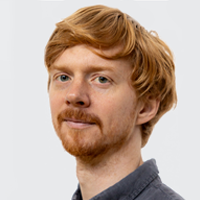 quantum materials out-of-equilibrium
quantum materials out-of-equilibrium
Using light to control materials where quantum effects play a role on macroscopic scales is a key challenge in the development of quantum technologies. Denis Golež is theoretically exploring microscopic mechanisms for material manipulation with light and developing modelling frameworks for comparison with state-of-the-art experiments.
Denis Golež
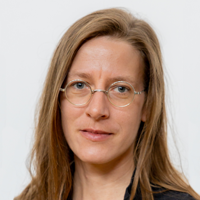 statistical physics of non-equilibrium quantum systems
statistical physics of non-equilibrium quantum systems
Interacting quantum systems, driven out of equilibrium, can access exotic states but are challenging to comprehend. Zala Lenarčič is exploring fundamental mathematical properties and modern numerical tools, like machine learning, to develop effective statistical descriptions of excited systems. This knowledge can guide the design of non-equilibrium protocols using light to engineer peculiar transport properties of quantum materials.
Zala Lenarčič
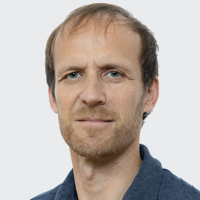 quantum spin liquids
quantum spin liquids
Quantum spin liquids represent an exotic phase of magnetic materials that lacks long-range order even at zero temperature despite strong exchange interactions. They are characterized by strong quantum entanglement that could potentially be exploited for fault-tolerant quantum computation. Andrej Zorko experimentally investigates their realizations on two dimensional geometrically frustrated spin lattices.
Andrej Zorko
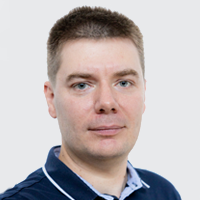 next generation of collaborative robots
next generation of collaborative robots
The development of a next generation of collaborative robots capable of working effectively in the natural environment of humans will have a positive impact in many areas. Tadej Petric explores how biologically plausible robotic controllers could bridge the gap and bring robots closer to us. To reach this level, we must first enable them to perform robust, goal-directed, whole-body motions that are superior to humans and can match or exceed typical industrial robots. This research will therefore lay the foundation for a new generation of collaborative robots that are more aware of their environment and their human partners, which could have profound implications for productivity and assistance capabilities in manufacturing, healthcare, and home environments.
Tadej Petrič
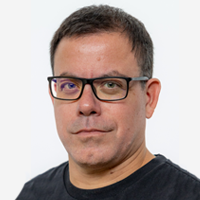 quantum technologies with cold atoms
quantum technologies with cold atoms
Quantum technology is about creating life-changing applications and devices based on the laws of quantum mechanics. It is a multidisciplinary area of research and development involving physics, electronics and engineering. Peter Jeglič is exploring experimental techniques for preparation, control and imaging of cold atoms with a goal to demonstrate atom-based quantum simulators, ultra-sensitive sensors and novel quantum devices.
Peter Jeglič
